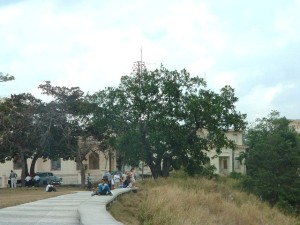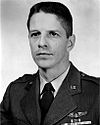 One of the symptoms of an approaching nervous breakdown is the belief that one’s work is terribly important
One of the symptoms of an approaching nervous breakdown is the belief that one’s work is terribly important
― Bertrand Russell, The Conquest of Happiness
Cecilia returned to her room at the Metropol, so exhausted she was barely able to put the room  key in the slot. She put her bag down on the table next to the dresser, changed into her bedclothes, and went to lie down on the bed. But as with previous nights, sleep eluded her. She tossed about for 30 minutes or so, realized that this wasn’t working and thought for the first time in her life about taking a soporific to aid in her quest for slumber. But the thought of getting dressed again and going downstairs to see if there was anything available was too much for her to consider. So instead, she got up, turned on the
key in the slot. She put her bag down on the table next to the dresser, changed into her bedclothes, and went to lie down on the bed. But as with previous nights, sleep eluded her. She tossed about for 30 minutes or so, realized that this wasn’t working and thought for the first time in her life about taking a soporific to aid in her quest for slumber. But the thought of getting dressed again and going downstairs to see if there was anything available was too much for her to consider. So instead, she got up, turned on the  bedside light, and retrieved Nikolai’s manuscript from her bag. She also took her laptop from its case and opened it to activate her translator application. She scanned each of the 9 pages of the manuscript, and waited about a minute for the English language version to be put into a file and stored on the hard drive. She opened the file and began to read.
bedside light, and retrieved Nikolai’s manuscript from her bag. She also took her laptop from its case and opened it to activate her translator application. She scanned each of the 9 pages of the manuscript, and waited about a minute for the English language version to be put into a file and stored on the hard drive. She opened the file and began to read.
The  cover page translated to indicate the manuscript contained some kind of agricultural report from pre-revolution Russia. At first it seemed odd that Nikolai would conceal the manuscript with this inocuous cover. But then Cecilia recalled his comment about his peers making him quit science if the manuscript’s contents were read. Clearly Nikolai was concerned about what was contained within the remaining document.
cover page translated to indicate the manuscript contained some kind of agricultural report from pre-revolution Russia. At first it seemed odd that Nikolai would conceal the manuscript with this inocuous cover. But then Cecilia recalled his comment about his peers making him quit science if the manuscript’s contents were read. Clearly Nikolai was concerned about what was contained within the remaining document.
Cecilia put on her reading glasses and began to read the first couple of pages. The information seemed rather routine, laid out in the usual way scientific reports are arranged. The title was “The Linkage Between Worm Holes and Black Holes”. There was the Acknowledgements page, thanking his colleagues and graduate student Vladimir for their cooperation in the development of the research. Next was an Executive Summary, which began with a background paragraph regarding  black holes and a review of the questions that had dogged scientists in the early 21st century: how is time changed in a black hole? Can black holes be used as an energy source? Will an observer falling into a black hole be able to witness all future events in the universe outside the black hole? By 2024, all these questions were answered to the satisfaction of all but a few outliers in the cosmological fraternity. Time slows down, but does not appear to because of relativity; yes, there is enormous energy that can be acquired from a black hole; and finally, not necessarily. Black holes can exist independent of the ‘end of times’.
black holes and a review of the questions that had dogged scientists in the early 21st century: how is time changed in a black hole? Can black holes be used as an energy source? Will an observer falling into a black hole be able to witness all future events in the universe outside the black hole? By 2024, all these questions were answered to the satisfaction of all but a few outliers in the cosmological fraternity. Time slows down, but does not appear to because of relativity; yes, there is enormous energy that can be acquired from a black hole; and finally, not necessarily. Black holes can exist independent of the ‘end of times’.
Having dispensed with this background, and still no more able to sleep than before, Cecilia got up to get a glass of water. She cleaned her reading glasses in the sink, and wiped them on the small hand towel next to the door. She returned to the bed, and put the covers over her legs as the room seemed to have grown colder in the last half hour or so. She continued on with her reading.
The next section was labeled Data and Discussion. It began with Dr. K explaining that he had collected data from observatories all over the globe, including Florence, Italy, Uttarakhand, India, Hertfordshire, UK,  Miami, Florida,
Miami, Florida,  Havana, Cuba and six others. These eleven observatories were selected either because of their location or the quality and quantity of their data on black holes. Nikolai indicated he had gone back to the 1950’s and retrieved all available data from these sites. He made a note of how voluminous the data was, and how much he appreciated Vlad, the graduate student’s help feeding all this data into their DataCube®. The most up-to-date Datacubes could manage a terrabyte/second feed and could ultimately hold a petabyte of data. A petabyte is one million gigabytes, roughly 1300 times as much as her computer held in 2014. A Datacube was the same size as the
Havana, Cuba and six others. These eleven observatories were selected either because of their location or the quality and quantity of their data on black holes. Nikolai indicated he had gone back to the 1950’s and retrieved all available data from these sites. He made a note of how voluminous the data was, and how much he appreciated Vlad, the graduate student’s help feeding all this data into their DataCube®. The most up-to-date Datacubes could manage a terrabyte/second feed and could ultimately hold a petabyte of data. A petabyte is one million gigabytes, roughly 1300 times as much as her computer held in 2014. A Datacube was the same size as the  Mac Mini she gave away to Mirabel’s niece in 2013.
Mac Mini she gave away to Mirabel’s niece in 2013.
As dull as this background information was, Cecilia felt sure it would make her sleepy, but she appeared to be particularly sensitive to jet lag. Spending all her time in her research facilities and seldom venturing out beyond her small world was likely to blame for this acute inability to get her circadian rhythms corrected. So she continued to plow on until she got to page 7. At first, Nikolai introduced the topic of missing data rather casually and made a note that a few missing data points were not unusual in the reams of data he’d accumulated for this paper. But then he went on to note that the Datacube’s sorting software had found at least some data for every day and every location, with the exception of one day and two locations. On that day and in those two places, no data was available. He went on to note that he had looked for other, less specific data from those two locations, and none whatsoever was available. He thought perhaps there was a power outage on that day that would have affected those two observatories. But just to verify his hypothesis, he looked for non-astronomical data for those two locations on that day: weather, closing  stock market prices or anything else that would have come from any source from those two locations. To his surprise and somewhat to his dismay, there was no data whatsoever of any kind available for the two locations. At that point in the text, Nikolai named the two locations: Miami, Florida and Havana, Cuba. The day in question was October 27, 1962.
stock market prices or anything else that would have come from any source from those two locations. To his surprise and somewhat to his dismay, there was no data whatsoever of any kind available for the two locations. At that point in the text, Nikolai named the two locations: Miami, Florida and Havana, Cuba. The day in question was October 27, 1962.
Cecilia read the rest of the manuscript that ended on page 9 with a conclusion that seemed vague and off-point, relative to where Nikolai had begun. He seemed preoccupied with the missing day’s data from those two locations, and possibly that was what had caused his lack of coherence in his conclusions. Cecilia put the manuscript down on the bed, and just lay there waiting for sleep to show any sign of approaching. Disgusted with herself and her body, she turned again to her laptop, and, on a whim, Googled “October 27, 1962”. The first five entries referenced the Cuban Misile Crisis, referring to that day as “Black Saturday” because of the downing of the U-2 plane piloted by  Major Rudolf Anderson. She found that curious, but in her exhausted state, could go no further with it. She switched off the light, and did her best to sleep. Just as she was about to drift, off, she sat up as though she’d been shot from a cannon at the circus. She quickly grabbed the laptop, and again put the date into the search slot. She scrolled down to about a third of the way from the bottom, and what she found there was so startling, she put down the laptop, and found herself beginning to experience hyperventilation again, just as she had when she saw the picture at Nikolai’s apartment. This picture that accompanied the notation brought memories of her grandfather racing back into her conscious mind. This picture of the man was taken when he was younger than the picture she’d previously retrieved after her last trip with Abuelo when he’d returned to Cuba to die. But it was the same man and the same event: Vasili Arkhipov and the incident with the B-59 submarine at the bottom of the Sargasso Sea.
Major Rudolf Anderson. She found that curious, but in her exhausted state, could go no further with it. She switched off the light, and did her best to sleep. Just as she was about to drift, off, she sat up as though she’d been shot from a cannon at the circus. She quickly grabbed the laptop, and again put the date into the search slot. She scrolled down to about a third of the way from the bottom, and what she found there was so startling, she put down the laptop, and found herself beginning to experience hyperventilation again, just as she had when she saw the picture at Nikolai’s apartment. This picture that accompanied the notation brought memories of her grandfather racing back into her conscious mind. This picture of the man was taken when he was younger than the picture she’d previously retrieved after her last trip with Abuelo when he’d returned to Cuba to die. But it was the same man and the same event: Vasili Arkhipov and the incident with the B-59 submarine at the bottom of the Sargasso Sea.

Cecilia put her head between her knees, and forced herself to breath slowly and shallowly. She began self-talk, assuring herself that this was just some kind of strange coincidence, and that’s all it was. Finally, her heart rate decreased and she was able to breath normally and recover from her dizziness. She calmly went back to the laptop and entered Vasili Arkhipov into the search slot. A profile of him came up, indicating his involvement with both the B-59 submarine as well as the K-19 reactor explosion incident. It also indicated that Arkhipov had died in 1998, as a direct result of his exposure to radiation. Further investigation showed that his widow, Olga, was alive and, in fact, was living in Moscow! Cecilia consulted the on-line global address book in her laptop, and found the address where Olga was living. Google Maps showed the location as a  nursing home on the outskirts of Moscow. Cecilia decided to go and visit Olga in the morning while Nikolai was busy writing his letter. She wanted to hear from Vasili’s widow what had happened on that submarine, and be assured once and for all that the nightmare of nuclear annihilation her grandfather had experienced was just that and nothing else. With that thought, Cecilia drifted off to a much-needed three hours of sleep.
nursing home on the outskirts of Moscow. Cecilia decided to go and visit Olga in the morning while Nikolai was busy writing his letter. She wanted to hear from Vasili’s widow what had happened on that submarine, and be assured once and for all that the nightmare of nuclear annihilation her grandfather had experienced was just that and nothing else. With that thought, Cecilia drifted off to a much-needed three hours of sleep.
